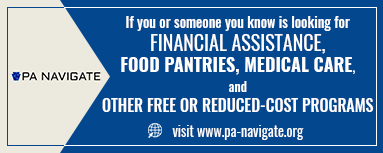If you are confused about vaccine safety, please know that what you hear as sound bites are often myths. We grew up with myths. George Washington as a child, chopped down a cherry tree and admitted it to his father. Atlantis was an ancient, advanced civilization that sank into the ocean. Columbus discovered America. These falsehoods may confuse, but no one died because they believed George Washington could not lie.
Vaccine myths are another story.Vaccine use can save lives. One study estimates that in the first five months of their use, COVID-19 vaccines saved about 139,000 lives, according to the National Institutes of Health.
The COVID-19 pandemic was a perfect storm for vaccine criticism. Before it happened, a small group publicly opposed their use. Through social media and media outlets, they found a much larger audience of Americans frustrated by and skeptical of the government’s response to the infection. As a result, many of us who never questioned vaccine use before refuse to get them. This is a bad idea for these individuals and the community. Here are some vaccine myths and the reality.
Vaccines are a personal choice.
Yes and no. If you’re conscious and mentally competent, you decide what healthcare you get and don’t get, including vaccines. However, unless there’s an exemption, some workers in the healthcare field, members of the military, and children attending childcare or school in Pennsylvania must be vaccinated.
Smoking tobacco can also be seen as a personal choice, but you’re impacting others with second-hand smoke. Widespread vaccine use prevents some diseases. If they’re not used, it helps their spread and other people are harmed, just as tobacco smoke can harm someone not smoking. It may be a personal choice, but not using vaccines impacts more people than you.
Vaccines are toxic.
Depending on the vaccine and the person, a vaccine may be toxic. But, overall, they are safe and effective. The chances of a severe adverse reaction to a vaccine are tiny. On average, of a million people who receive vaccinations, one or two individuals may suffer a severe reaction, according to the U.S. Department of Health and Human Services. If all 13 million people in Pennsylvania received a vaccination, approximately between 13 and 26 people would have a severe reaction. In comparison, your chances of dying in a vehicle accident are about one in 93
If you have any questions or doubts about the safety of a vaccine, contact your healthcare provider to discuss the chances that you may have a serious reaction or complication if you use it.
I know what is best for my child.
You may know many things that are best for your child. You know their personality, how they might respond to a situation, and their likes and dislikes. Unless your child had a specific reaction to a particular vaccination, or you’re a healthcare professional, if you think your child will have a bad reaction or complication to a vaccine, it’s a pure guess, probably based on false information. If you have concerns about your child’s use of vaccines, talk to your pediatrician.
Vaccines cause harm.
Vaccines can cause harm, but it’s extremely rare. Generally, a child receiving a vaccine has less than a one-in-a-million chance of suffering a bad reaction, and the risk of permanent harm is even smaller. You probably expose yourself and your child to far greater risks without thinking about it. Injuries due to a firearm, swimming pool, or vehicle are far more likely.
Do You Have Questions or Concerns About Vaccines?
If so, let’s start the conversation. Call the Bucks County Health Improvement Partnership at (267) 291-7882 or fill out our online contact form






